Introduction

Choosing the right decking material can feel like navigating a maze of options, each with its own advantages and quirks. With the endless choices available, from traditional wood to modern alternatives, understanding decking options is essential for any outdoor project. Among these choices, PVC and composite decking have emerged as popular contenders, each offering unique benefits that cater to different needs and preferences.
Understanding Decking Options
From classic wood boards to innovative composite wood decking boards, the market is brimming with possibilities. It's crucial to understand the characteristics of each material decking type—especially when comparing PVC decking vs composite—to make an informed decision that aligns with your outdoor vision.
Why Choose Your Decking Wisely
Selecting your decking wisely isn't just about aesthetics; it's about durability, maintenance, and long-term value as well. The right choice can enhance your outdoor space while saving you time and money in upkeep down the line. By weighing factors such as cost, longevity, and visual appeal—especially when considering deck composite decking—you'll ensure your investment stands the test of time.
The Rise of Composite Decking
In recent years, composite decking has gained significant traction among homeowners seeking a blend of beauty and practicality in their outdoor spaces. This surge in popularity can be attributed to its impressive durability and low maintenance requirements compared to traditional materials like wood or even PVC decking. As more people discover the perks of composite wood options—such as resistance to weathering and fading—the future looks bright for this innovative material.
Overview of PVC Decking
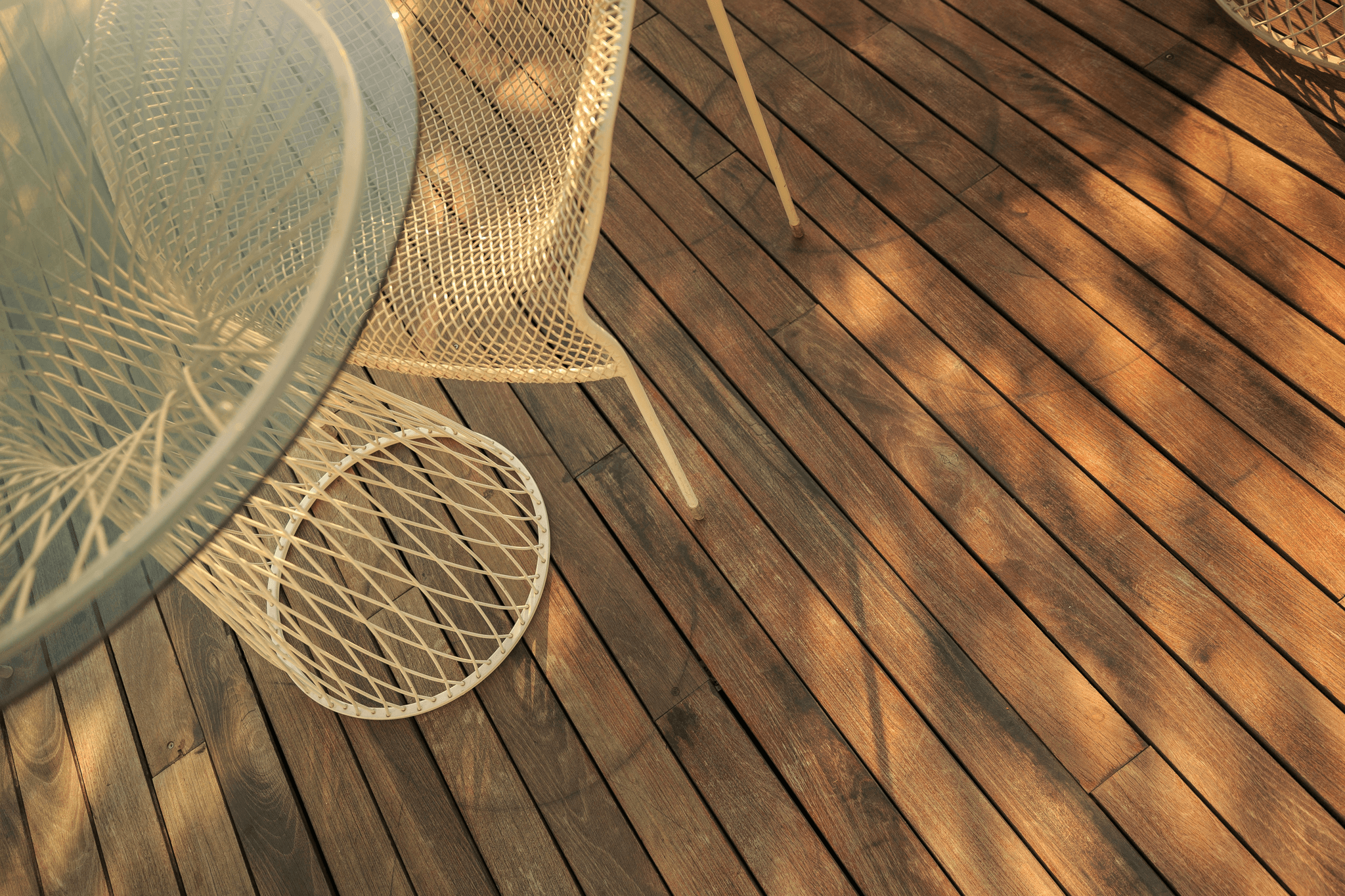
What is PVC Decking?
PVC decking, or polyvinyl chloride decking, is a type of synthetic decking material made entirely from plastic. Unlike traditional wood or composite wood decking boards that combine natural fibers with plastic, PVC is 100% man-made, which contributes to its distinct properties. This means no splintering and no rotting—just a solid surface that can withstand the elements.
Benefits of PVC Decking
One of the standout benefits of PVC decking is its exceptional resistance to moisture and insects, making it an ideal choice for areas with high humidity or pest issues. Additionally, it requires minimal upkeep; a simple wash with soap and water will keep your boards looking pristine year-round. When comparing pvc decking vs composite options, many homeowners appreciate the vibrant color selections available in PVC materials that resist fading over time.
Popular Brands and Products
Several brands have established themselves as leaders in the PVC decking market by offering innovative products that cater to various aesthetic preferences and budgets. Trex's Transcend line stands out for its eco-friendly composition and stylish designs, while Zuri boasts realistic wood-like finishes that are hard to distinguish from actual timber. Other notable mentions include TimberTech’s Azek collection and Wolf Serenity Decking—both providing quality options for those seeking durable material decking solutions.
Exploring Composite Decking

This innovative material combines wood fibers and recycled plastic, creating a product that mimics the look of natural wood while offering enhanced durability. As we delve into composite decking, it's essential to understand its features, benefits, and the leading brands that dominate this space.
What is Composite Decking?
Composite decking is a synthetic building material made from a blend of wood fibers and plastic polymers. Unlike traditional lumber, which can warp or splinter over time, composite wood decking boards are designed to withstand the elements while maintaining their integrity. This makes them an attractive option for those looking for a long-lasting solution in the ongoing debate of PVC decking vs composite.
Advantages of Composite Wood Decking
One of the standout advantages of composite wood decking is its low maintenance requirements compared to traditional wooden decks. Homeowners can enjoy their outdoor spaces without worrying about regular staining or sealing—just an occasional wash will do! Additionally, composite boards deck are resistant to fading and staining, making them ideal for areas with heavy foot traffic or exposure to harsh weather conditions.
Another benefit worth mentioning is sustainability; many brands use recycled materials in their manufacturing processes. This eco-friendly approach not only reduces waste but also appeals to environmentally-conscious consumers looking for green alternatives in their choice of material decking. When weighing PVC decking vs composite options, many find that composites offer a perfect blend of aesthetics and functionality.
Leading Brands like Composite Decking Inc
In the competitive market of composite deck materials, several brands stand out due to their quality and innovation. One notable player is Composite Decking Inc., known for producing high-performance boards that cater to various design preferences and budgets. Their products often feature advanced technologies that enhance durability while providing stunning visual appeal—perfect for any outdoor project!
Other reputable brands include Trex and TimberTech, both offering an extensive range of colors and textures in their composite lines. These companies have established themselves as leaders by consistently delivering reliable products backed by warranties that assure customers they’re making a sound investment in their homes’ outdoor spaces. So when you're considering your options between PVC decking vs composite choices, be sure to explore these leading brands for your next deck project!
Durability and Longevity
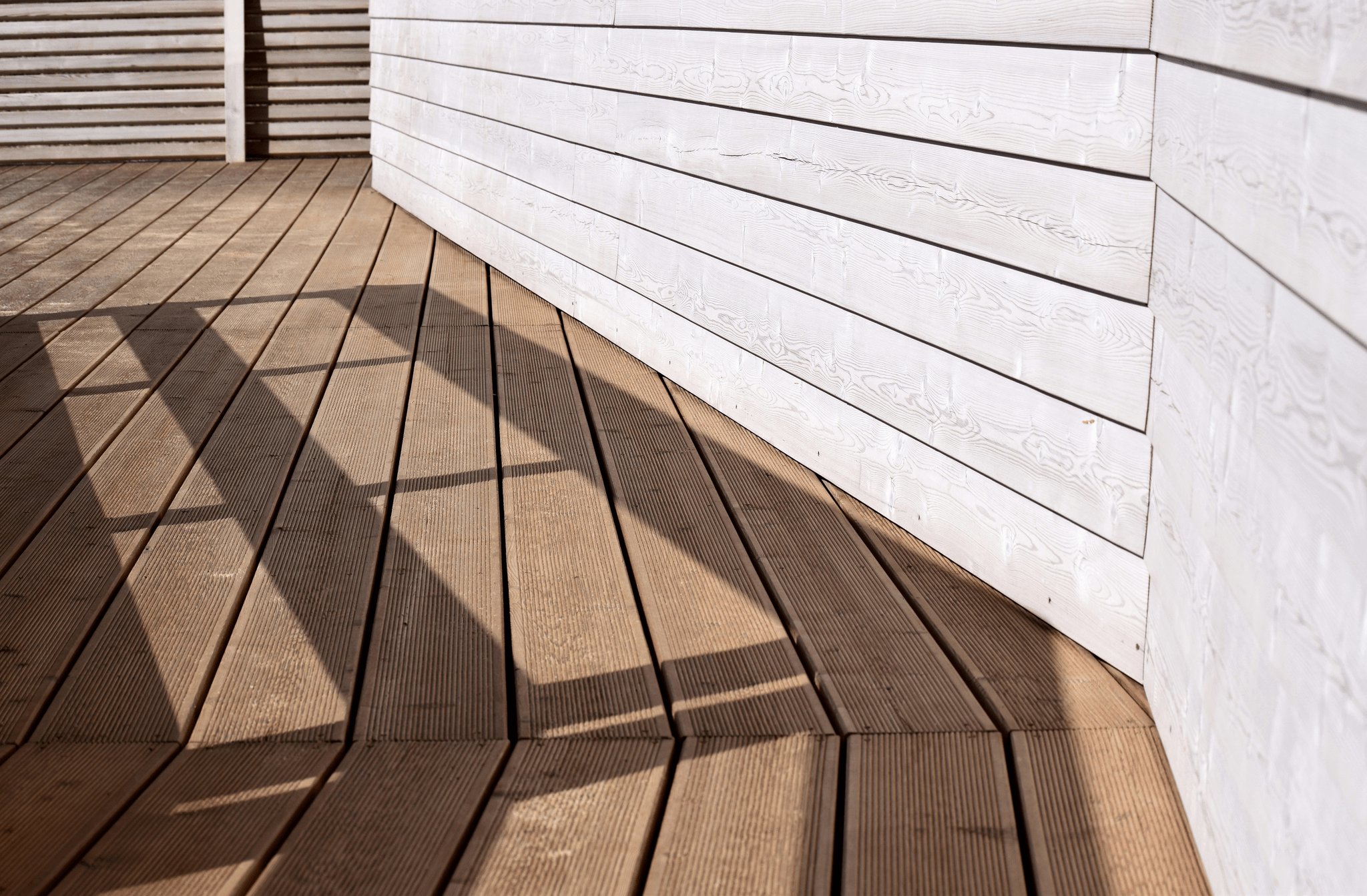
How PVC and Composite Stack Up
PVC decking boasts impressive durability due to its non-porous nature, which makes it resistant to moisture, mold, and pests. On the other hand, composite wood decking boards combine plastic with wood fibers, offering a balance of strength and aesthetic appeal but may require more upkeep over time. When comparing these two materials in terms of overall toughness, PVC often edges out as the more robust option for long-term outdoor use.
Weather Resistance and Maintenance
Both PVC decking and composite materials excel in weather resistance but approach maintenance differently. PVC decking requires minimal upkeep—just an occasional wash with soap and water will keep it looking sharp without any risk of rot or decay. Composite wood decking boards may need periodic sealing or staining to maintain their appearance since they can absorb moisture; thus, understanding your local climate is crucial when deciding on your material decking choice.
Lifespan Comparisons
In terms of lifespan comparisons between these two options, PVC typically lasts longer than composite due to its inherent resistance to environmental factors. While many brands claim their composite decking can last around 25 years with proper care, some premium PVC products boast lifespans exceeding 30 years without significant wear or degradation. Ultimately, if longevity is your primary concern in the battle of pvc decking vs composite, you might find yourself leaning toward the former for a worry-free investment.
Aesthetic Appeal
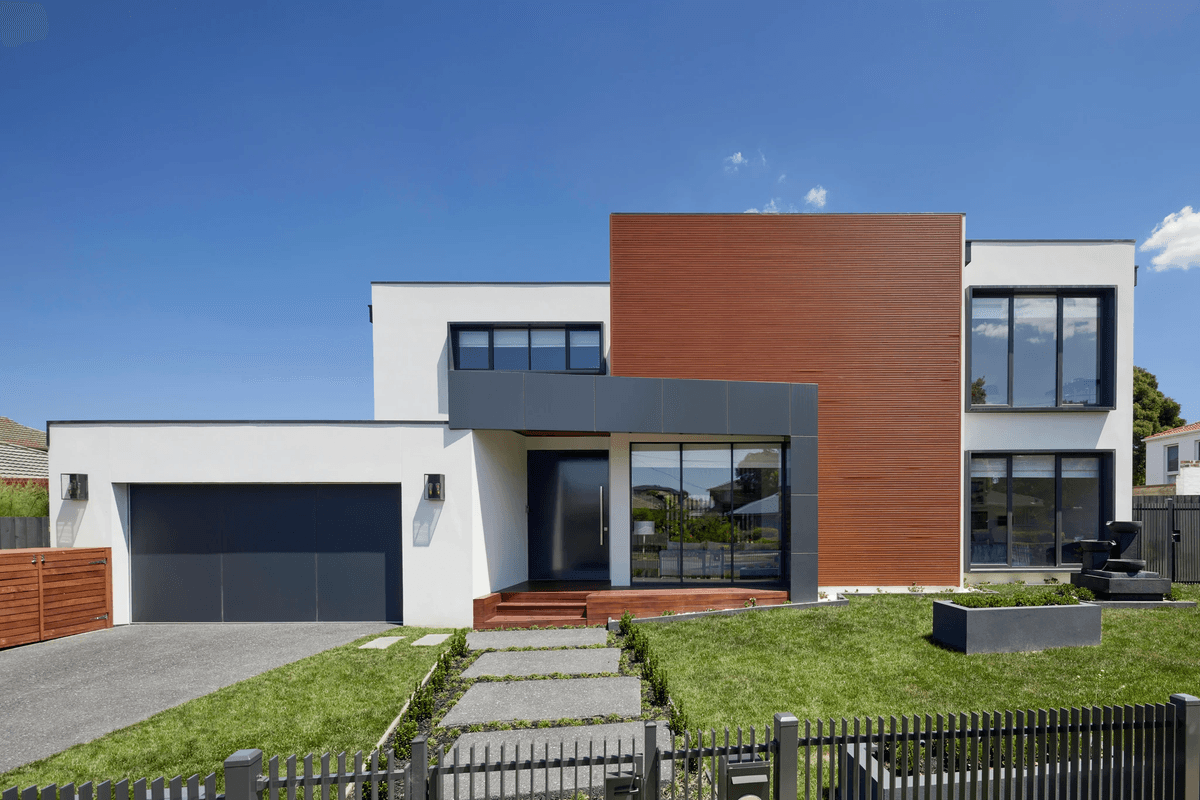
When it comes to decking, aesthetics play a significant role in your overall satisfaction and the value it adds to your home. The visual differences between PVC decking and composite decking can be striking, influencing not just the look of your outdoor space but also its feel. Understanding these differences can help you make a more informed choice that aligns with your design vision.
Visual Differences in Decking Material
PVC decking boasts a sleek, uniform appearance that often mimics the look of natural wood without the imperfections associated with real timber. In contrast, composite wood decking boards offer a more varied texture and grain pattern, which can create a warm, inviting atmosphere reminiscent of traditional wooden decks. When comparing PVC decking vs composite options side by side, you may find that while both are visually appealing, their unique characteristics cater to different tastes and preferences.
Color and Texture Options
Both PVC and composite decking materials come in an array of colors and textures that allow homeowners to customize their decks according to personal style. PVC boards typically offer vibrant hues that resist fading over time, ensuring your deck maintains its fresh appearance for years to come. Composite wood decking boards provide not only color variety but also realistic textures that simulate natural wood grain, giving you the best of both worlds—beauty and durability.
The Impact of Design Choices
The choices you make in design can dramatically influence how your deck complements your home’s exterior and landscape. Selecting the right material decking—whether it’s PVC or composite—can enhance curb appeal while providing functional outdoor living space for family gatherings or quiet retreats. Ultimately, investing in quality materials like PVC decking vs composite options will ensure that your deck remains stylish and relevant for years ahead while reflecting your unique taste.
Cost Considerations
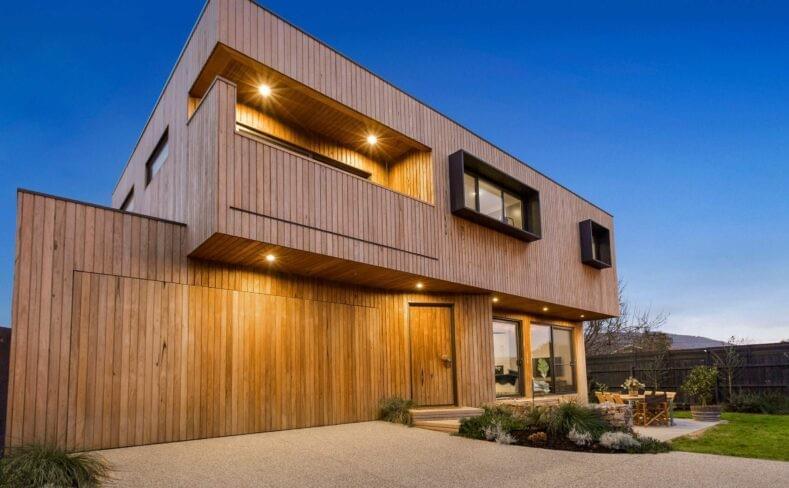
When it comes to choosing between PVC decking vs composite, understanding the cost implications is crucial. The initial price tag of your decking material can vary significantly based on the type and brand you choose. However, it's essential to look beyond just the upfront costs and consider long-term value as well.
Pricing of PVC Decking vs Composite
PVC decking typically falls within a different price range compared to composite wood decking boards. On average, PVC can be slightly more expensive than some entry-level composite options, but it often offers superior durability and lower maintenance costs over time. It's important to compare prices carefully across various brands to find the best deal for your chosen material decking.
When evaluating the pricing of these two options, consider not only the cost per square foot but also any additional expenses related to installation or maintenance. While you may save a few bucks upfront with composite decking, those savings could be offset by higher maintenance needs down the line. Ultimately, knowing how PVC decking vs composite stacks up in terms of overall value will help you make an informed decision.
Long-term Investment Value
Investing in high-quality boards deck can pay off in spades when considering longevity and performance. While both PVC and composite wood offer great aesthetics and functionality, their long-term investment values differ significantly due to maintenance requirements and lifespan expectations. For instance, while composite wood may require periodic sealing or staining, PVC generally requires minimal upkeep.
In terms of resale value, properties with well-maintained decks made from durable materials like PVC often see a better return on investment when sold. Homebuyers appreciate low-maintenance options that promise longevity—traits that are characteristic of both PVC decking vs composite alternatives. Therefore, weighing these factors will help you determine which material provides better long-term value for your outdoor project.
Budgeting for Your Outdoor Project
Budgeting effectively for your outdoor project means taking into account not only the cost of materials but also labor and potential future expenses related to upkeep or repairs. When planning your budget for either PVC or composite wood decking boards, consider creating a detailed list that includes all associated costs—from purchasing materials to installation fees—and stick to it!
It's wise to leave room in your budget for unexpected expenses; after all, no one wants their dream deck turned into a financial nightmare due to unforeseen complications! Whether you're leaning toward PVC decking vs composite options or something else entirely, having a solid budget plan will ensure that you enjoy your new outdoor space without breaking the bank.
Conclusion
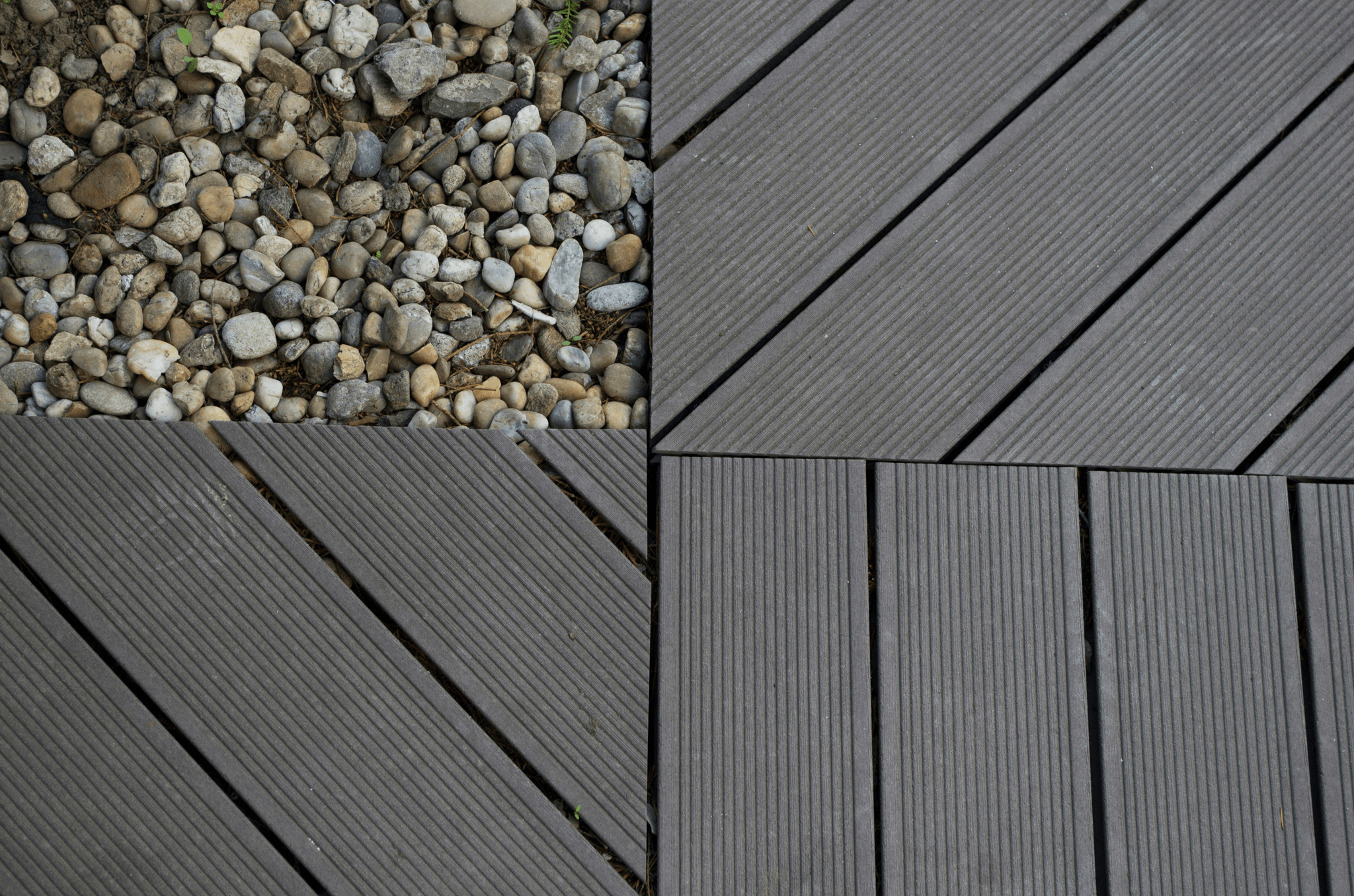
When it comes to decking material, making an informed choice is crucial for ensuring that your outdoor space meets both your aesthetic desires and practical needs. With the ongoing debate of PVC decking vs composite, understanding the nuances between these options can help you select the right boards deck for your lifestyle. Remember, investing time in research today can lead to a more satisfying outdoor experience tomorrow.
Making an Informed Choice
Choosing between PVC decking and composite wood decking boards involves considering factors like maintenance, durability, and cost-effectiveness. Each type of material decking has its unique advantages; for instance, while PVC decking offers remarkable resistance to moisture and stains, composite wood provides a natural look with less upkeep than traditional wood. Ultimately, weighing these benefits against your specific requirements will lead you to make an informed choice that resonates with your vision.
Balancing Aesthetics with Functionality
A successful deck composite decking design harmonizes aesthetics with functionality, ensuring that your outdoor area is not only beautiful but also practical for everyday use. The visual appeal of various color and texture options available in both PVC and composite materials allows homeowners to create a personalized space that reflects their style while enjoying the benefits of longevity and low maintenance. Thus, when selecting your decking material, consider how well it aligns with both your decorative goals and functional needs.
The Future of Decking Materials
As technology advances, the future of decking materials looks promising with innovations continuously emerging in both PVC decking vs composite options. New formulations are being developed to enhance durability further while providing eco-friendly choices that appeal to environmentally conscious consumers. As trends evolve toward sustainability and aesthetic versatility, staying updated on these advancements will empower you to make smart choices for your outdoor projects in years to come.
